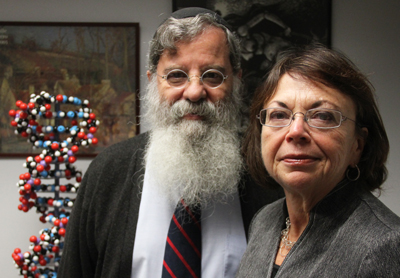USC Researchers Find New Cancer-Causing Virus
A team of USC researchers have linked cytomegalovirus with the most common kind of salivary gland cancer and possibly other cancers.
CMV is what is known as an oncovirus, or cancer-causing virus.

There are fewer than ten oncoviruses that scientists have confirmed and linked to various kinds of cancer, including HPV, which is now known to cause cervical cancer.
The findings were published in the online journal Experimental and Molecular Pathology.
CMV can trigger cancer in healthy cells or act as a catalyst for tumor formation. Exposure to CMV is especially dangerous for pregnant women, because it can cause birth defects.
Michael Melnick, the lead author and professor of developmental genetics in USC's Ostrow School of Dentistry, said that no one knows what reactivates CMV.
"CMV is incredibly common; most of us likely carry it because of our exposure to it," Melnick said. "In healthy patients with normal immune systems, it becomes dormant and resides inactive in the salivary glands."
Other contributors to the study were Tina Jaskoll, professor of developmental genetics and co-director of the Laboratory for Developmental Genetics; Parish Sedghizadeh, director of the USC Center for Biofilms and associate professor of diagnostic sciences; and Carl Allen at The Ohio State University.
Researchers studied both human salivary gland tumors and the salivary glands of postnatal mice. When they exposed the salivary glands of the mice to purified CMV, cancer developed.
The experiments also uncovered a specific molecular signaling pathway that the virus manipulates to create tumors.
"Typically, this pathway is only active during embryonic growth and development," Melnick said.
Salivary gland cancer is particulary severe because it is typically only caught in the later stages, Jaskoll said in the press release.
The researchers hope that their findings will lead to more discoveries of treatments and prevention methods.
"This should be a most fruitful area of investigation for a long time to come," said Melnick. "This is just the tip of the iceberg with viruses."
RELATED:











[...] the complete article here. Read the original manuscript via Experimental and Molecular Pathology. [...]